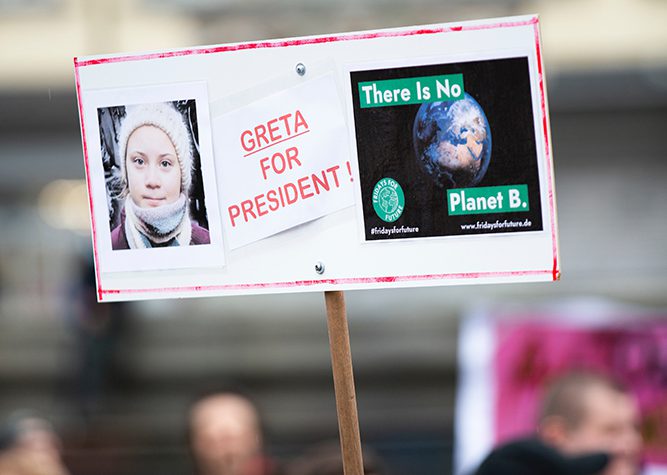
Recently, the Catholic Church took two small steps for womankind: This month, Pope Francis named the first woman to a managerial position in the Vaticans most important office, the Secretariat of State. And in October, the worlds bishops suggested that Francis reconvene a commission he had created, at the urging of nuns, to study the ordination of women as permanent deacons church ministers who are able to perform some of the duties of priests, but not to say Mass or hear confessions.
Yet these reforms only make clear how little power women hold in the church, where they constitute about half of Catholicisms 1.2 billion adherents. Not only are women barred from ordination to the priesthood, they are not even allowed to vote at Vatican synods, convened to advise the pope about challenges facing the church.
Francis raised our expectations that women would actually be given power. Six years into his reign, however, he hasnt lived up to our hopes.
In his New Years sermon, Francis declared that women should be fully included in decision-making processes in the church. Many popes have spoken highly of Catholic women, but by repeatedly speaking warmly of womens gifts and the churchs need for them, Francis raised our expectations that women would actually be given power. Six years into his reign, however, he hasnt lived up to our hopes.
Other institutions have evolved. Women may not yet hold equal power with men, but few contest their right to practice medicine or law, to excel in the arts and sciences, or to run for elected office. But Catholicism relegates us to second-class citizenship in the church. Failing to empower women narrows the churchs vision, and makes it less equipped to be a force for good in the world.
Thats because many Catholic women, including nuns, appear to view the world through a different moral lens than church leaders. The Leadership Conference of Women Religious, which represents the majority of sisters in the United States, has consistently stressed social justice in its public positions and priorities. Catholic bishops, in contrast, have often emphasized sexual morality in their pronouncements.
In one particularly notable case, Catholic nuns in 2010, including Sister Carol Keehan, then-head of the Catholic Health Association, strongly supported the passage of the Affordable Care Act. She believed in the laws potential to expand access to health care, considering the healing ministry of Jesus a key part of her gospel values. Keehan even accepted, albeit reluctantly, a compromise with the Obama administration that gave employees of Catholic institutions coverage for birth control, provided the institutions did not have to pay for or administer it.
In contrast, Catholic bishops went to court to block what has been termed the contraceptive mandate in Obamacare.
Indeed, the split between nuns and priests was so pronounced that the Vatican under Francis predecessor, Pope Benedict XVI, scolded the leaders of the majority of American religious orders of sisters for espousing radical feminist views and ignoring issues such as abortion and gay marriage.
Francis ultimately ended the Vaticans scrutiny of U.S. sisters, and appears to share their emphasis on social justice. But even with a progressive pope, womens priorities often are not reflected in long-standing Vatican positions.
Nothing makes that clearer than the sexual abuse scandal and the clergys response. Male clerics ignored or refuted the allegations of sex abuse victims for decades, seemingly more intent on protecting the institution and its band of brothers culture than the children under its care.
Women, in comparison, have led the charge for action and accountability. In 1988, Barbara Blaine, who had been sexually assaulted by her parish priest, founded the Survivors Network of those Abused by Priests, and petitioned Catholic clergy to do more to respond to the crisis. As the scandals increased, Catholic women continued to raise alarm bells and urged that the laity be more involved in ensuring that the church protect children.
In 2014, abuse survivor Marie Collins was named to a Vatican commission on protecting minors from abuse. But in a sign of how marginalized womens voices were, she resigned in 2017 out of frustration that Vatican bureaucrats failed to implement the groups recommendations.
It took Francis nearly six years to promulgate strong rules punishing the abuse of minors and vulnerable adults, as well as the cover-up of abuse. And even this policy, Collins charged, does not require prelates throughout the world to report abuse to civil authorities.
And while its helpful that the pope has promoted one woman to a high-ranking position in the Vatican, its unclear how revolutionary this change is. After all, the pope created a new position for Francesca Di Giovanni, so she didnt replace a man. Her new job continues work shed already been doing at the Vatican, and although she will be in charge of coordinating the churchs relationships with multilateral organizations, like the United Nations, she noted that she wants to preserve the harmony of her working group. After all, her colleague in this Vatican office used to be her boss.
Even when Catholic leaders seem to understand the need to give women more power in the church, they rarely rely on women as the first answer to a pressing challenge.
Last October, when the bishops met to address the spiritual and temporal needs of the people of the environmentally vulnerable Amazon region, women once again had no votes, even though they do most of the heavy lifting in the region. The bishops answer to the problem, not surprisingly, relied primarily on men:. They urged Francis to allow the Amazons married deacons to be ordained to the priesthood. And, as an after-thought, they considered how women could help.
In their final recommendations, the bishops praised women working in the region and supported a bigger role for them. But they stopped short of urging the Pope to ordain women as deacons, an action that would allow them to preach, baptize and preside at weddings and funerals.
Moreover, like his papal predecessors, Francis has closed the door on women becoming priests. One would expect that a pivotal gospel passage or a learned theological treatise was behind the churchs intransigence. But it largely boils down to one contention: All the apostles were men.
Even when Catholic leaders seem to understand the need to give women more power in the church, they rarely rely on women as the first answer to a pressing challenge.
As a female theologian I once interviewed quipped, All of them [the apostles] were Jews. Did Jesus intend that priests had to be Jews?
While its disappointing that Francis has shut down the possibility of female priests, particularly given the paucity of theological justification behind the limitation, there is another meaningful action he could take and he can do it completely on his own.
It wouldnt be a small step but a giant leap, one that has been suggested by progressive Catholics ever since he was elected pope in 2013: He can waive the 103-year-old requirement that cardinals must be ordained priests, and appoint at least one woman to the highest governing body in the church, the College of Cardinals. Now that would be a change Catholic feminists like me could celebrate.





More Stories
“Nobody is the reason for my death. My family is having to bear a lot of expenses because of me. I am a burden to them, my education is a burden to them….” A day after she wrote this note, Aishwarya Reddy, a student at Lady Shri Ram College for Women in Delhi…
Tom Brady’s arrival had the Buccaneers dreaming of an NFC South title, but the Saints showed the QB and his team they’re a far from being a contender.
Barnaby Joyce claims he told Malcolm Turnbull ‘others’ were having affairs